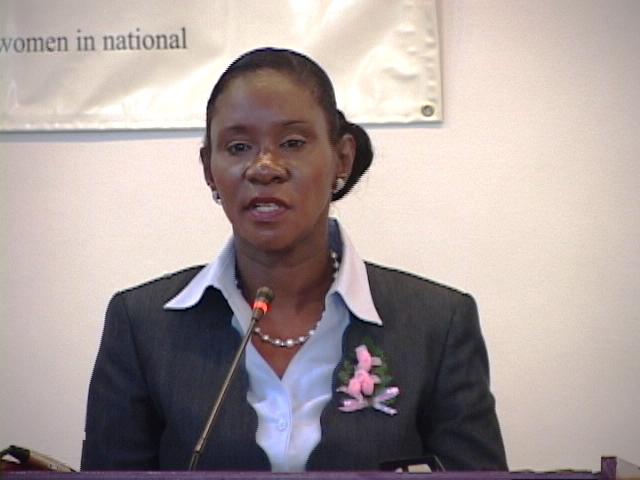Former Minister of Social Services in the PPP/C administration, Jennifer Webster has lost her Canadian residency after failing to fulfil her obligations under Canadian law.
Documents seen by Stabroek News show that Webster, who had been granted residency in Canada in 2009 had resided in that country for a mere 148 days over a five-year period.
According to Canadian law a permanent resident complies with the residency obligation with respect to a five-year period if, on each of a total of at least 730 days in that five-year period, they are physically present in Canada.
Having failed to comply with this requirement Webster had her residency revoked in November 2014 and appealed to the Immigration and Refugee Board of Canada. In July 2018 the board denied her appeal and ordered her departure from that country.
The former Minister did not challenge the legal reasoning behind the revocation conceding that she was not physically present in Canada for 730 days in the five-year period between December 2009 and December 2014, instead she asked that the board exercise its discretionary jurisdiction and allow the appeal on humanitarian and compassionate considerations.
As part of her appeal she testified that she invested most of the funds from the sale of her Guyana properties in the purchase of an expensive home, moved her personal belongings to Canada, purchased a motor vehicle and transferred her funds to Canada. She also testified that she was the primary caregiver for her 82 year old mother and maintained a close relationship with her 33 year old daughter.
“She testified she has no further assets in Guyana. Her immediate family is in Canada. Her mother is 82 years old and has been in Canada since the early 1980s. Her daughter lives with her and her brother and sister live in Canada, albeit in a different city. She testified she has no close family in Guyana other than cousins,” the decision notes.
However these and other arguments presented failed to persuade the lone member of the tribunal Roxane Vachon who found that rather than “pursue work opportunities in Canada [Webster] chose to maintain her income and her status abroad until she neared retirement and returned to Canada.”
Further it was noted that the former minister “did not return to Canada at the earliest opportunity” and lived a lifestyle “inconsistent with the low income she submits on her income tax returns.”
“Instead of returning after her first mandate she chose to seek re-election. There is no evidence the appellant even attempted to find work in Canada between 2009 and 2015. She chose to maintain her position as a minister for two mandates,” Vachon said in her decision on the issue.
Webster resigned from the PPP/C government in April 2015 citing ill health.
Webster sought to justify her second ministerial stint by saying that she grasped the opportunity Guyana had to have a seat at the UN Commission on the Status of Women to advance the cause of women and girls internationally but while Vachon found this to be “impressive work” she stressed that it was not a “compelling reason to be outside of Canada.”
“Her decision to depart and remain outside Canada was not beyond her control and although it may have been for a good cause, her reasons are not compelling,” Vachon concluded adding that “this course of conduct is not in compliance with the appellant’s residency obligation and with the skilled worker immigration class under which she obtained her permanent residence. The fact her daughter became established in Canada while the appellant worked overseas is not sufficient to outweigh the breach of her residency obligation.”

